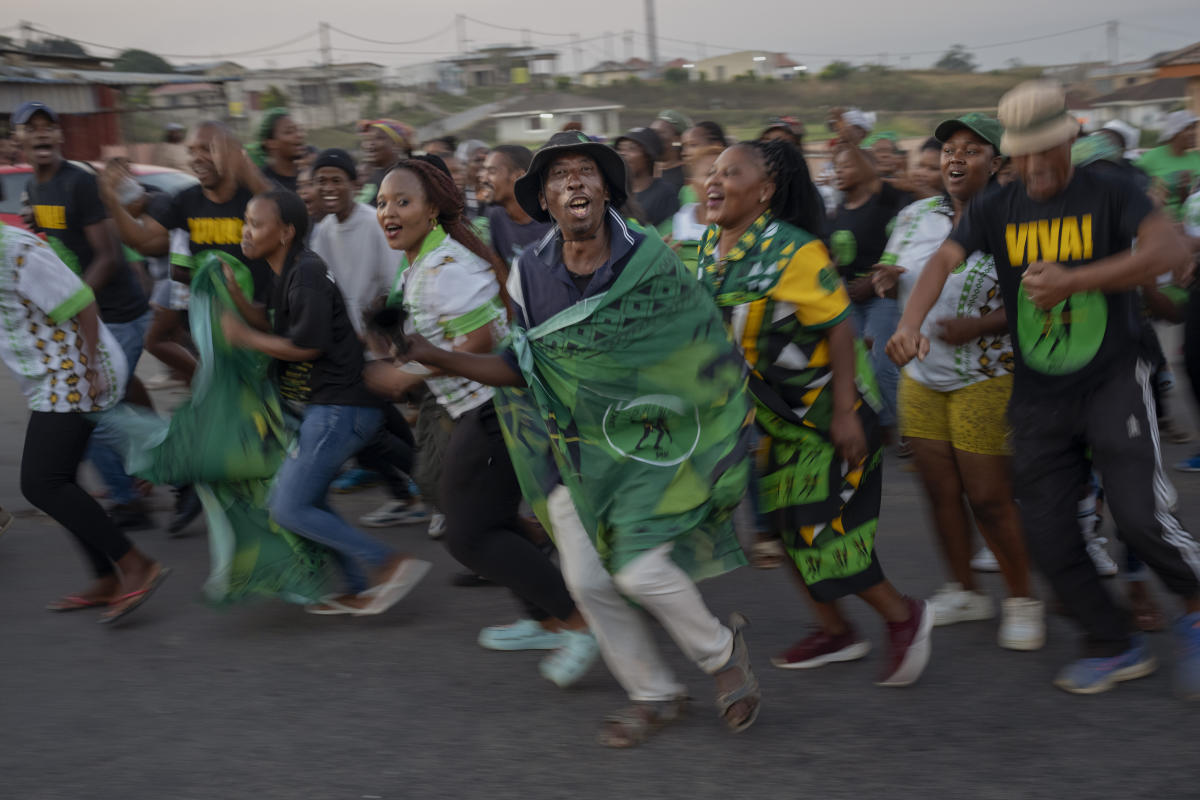The genuine politicking in South Africa might begin after the results of this week’s election are revealed as the nation deals with the possibility of no straight-out winner.
Early outcomes Thursday revealed the judgment African National Congress at well listed below 50% of the nationwide vote as counting continued, strengthening pre-election analysis that the celebration that has actually controlled South African politics for thirty years might lose its straight-out bulk in the coming days.
While some opposition celebrations will declare that as a success for modification, it’s uncertain how the modification would eventually emerge must the ANC lose its bulk.
The ANC is still far ahead of its next opposition in the partial outcomes. Even the worst-case situation for the ANC has it conveniently winning the most votes. However without a bulk it would likely require a union to form a federal government and — in the very first piece of service after the election — pick a president.
There’s been little indicator of who the ANC may partner with. That implies that as South Africa senses a landmark minute, there are issues coming if the ANC stays listed below 50%.
SELECTING A PRESIDENT
Choosing the president is the very first concern after the election. South Africans choose celebrations in nationwide elections and not straight for their president. The election chooses the number of seats each celebration gets in Parliament. The president is then picked in a vote by legislators after the election.
Due To The Fact That the ANC has actually had a clear bulk in the 400-member Parliament since apartheid ended in 1994, the procedure of choosing its leader as president has actually been easy.
This year may be extremely various. Without a bulk of legislators, the ANC would need to discover celebrations to vote with it in Parliament to get to the magic number of 201 to reelect President Cyril Ramaphosa for a 2nd and last five-year term.
FORMING A FEDERAL GOVERNMENT
Once Again, if the ANC does not have a bulk in Parliament, it would require that contract or union to likewise form a federal government. This has long-lasting ramifications as any union would successfully choose if laws are passed and the federal government remains in a position to put policy into action.
Without an arrangement, the ANC would not have the ability to govern — or in this case co-govern.
WHAT’S COMING NEXT
The timeline for what requires to take place and when it requires to take place is set out. The nationwide election outcomes need to be revealed within 7 days of surveys closing on Wednesday. The independent electoral commission that runs the election states the outcomes will be stated by Sunday, well within the time limitation. From the time the outcomes are stated, the brand-new Parliament has 2 week to come together for its very first sitting and choose a president.
That duration in between the outcomes being revealed and Parliament sitting is then anticipated to include a flurry of settlements in between celebrations to see what can be exercised. Who the ANC may go into an arrangement with is anybody’s guess offered how little the celebration has actually stated relating to unions.
It’ll likewise depend upon how brief the ANC is from a bulk — if undoubtedly it does wind up brief in the results. If it requires simply a couple of percent to surpass 50, it may approach smaller sized celebrations. Some have actually currently stated they will not deal with the ANC.
If it is even more far from a bulk, it would likely require to speak to among the 2 most significant opposition celebrations. The centrist Democratic Alliance is the 2nd most significant celebration behind the ANC and the far-left Economic Liberty Fighters is the 3rd most significant. They have starkly various ideologies and might take the ANC in extremely various instructions.
“All bets are off in this election,” stated Democratic Alliance leader John Steenhuisen. “We’re heading into union nation.”
___
AP Africa news: https://apnews.com/hub/africa
